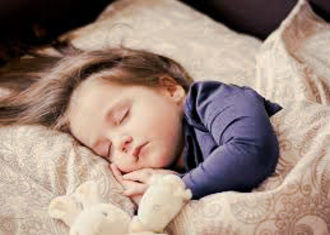We like to think that only adults suffer from the woes of sleep apnea. Well, it is a common misconception as we usually associate sleep disorders like sleep apnea with snoring sleeping adults but we’re about to be proved wrong. Sleep apnea affects people of all ages and sizes although your genes can predispose you to it even more. If you aren’t aware of it yet, children’s tonsils and adenoids (the glands in the throat at the back of the nose) are often removed because of sleep apnea as these body parts are often at their largest during the early years of life in contrast to the airway.
 While it is hard to determine right away what medical conditions children are suffering from because of their failure to verbalize it or describe their symptoms properly, common symptoms of sleep apnea in kids include behavioral problems at school and daytime fatigue aside from the snoring sound when asleep, of course, if left untreated. A child will not only subsequently suffer from health complications but it is also common for kids to struggle with their studies as learning difficulties usually come hand in hand with sleep apnea among children.
While it is hard to determine right away what medical conditions children are suffering from because of their failure to verbalize it or describe their symptoms properly, common symptoms of sleep apnea in kids include behavioral problems at school and daytime fatigue aside from the snoring sound when asleep, of course, if left untreated. A child will not only subsequently suffer from health complications but it is also common for kids to struggle with their studies as learning difficulties usually come hand in hand with sleep apnea among children.
Medical experts are warning parents that if you hear your young son or daughter snoring, it could potentially be a sign that the child is suffering from sleep apnea.
“It should raise a flag,” Dr. Sydney Butts, an ear, nose and throat doctor in New York City told ABC News of snoring in children. “You should think about watching some other signs and symptoms that may kind of sound the alarm.”
“It’s not a problem restricted to adults,” Butts added of sleep apnea. “It’s actually one of the most common reasons why children need their tonsils or adenoids removed.”
If untreated, sleep apnea can lead to chronic heart failure, stroke, high blood pressure, obesity and other health problems, according to the American Sleep Apnea Association (ASAA).
(Via: http://abcnews.go.com/Health/parents-sleep-apnea-children/story?id=49831250)
Aside from that, kids will also show signs of ADHD along with delayed growth and development and heart problems. After all, sleeping is a major restorative process that does the human body a lot of good especially that of a growing child. Once nighttime falls, they will also exhibit loud snoring, breathing pauses that is the major danger in sleep apnea, and restlessness during sleeping.
CHILDREN who snore are more at risk of developing reduced intellectual abilities, high blood pressure and behaviour issues than sound sleepers.
Worrying new research shows snoring in children is leading to long-term harm far beyond broken sleep because lower oxygen levels during the night can cause brain damage and cardiovascular problems.
A study of more than 260 children by a Monash University team found blood pressure in snorers is 10 per cent higher than those who slept soundly.
It also found the snorers — who made up 30 per cent of the children studied — suffered reduced mental abilities and displayed poor behaviour.
Snoring is nothing but harmless for kids. Parents should be alert and take action right away to get their kids checked by a doctor to determine what interventions are best suited for the child especially that such a condition like sleep apnea has detrimental (and possibly irreversible) effects to the heart and the brain. And remember, sleep apnea is characterized by countless breathing pauses in your sleep, so imagine your child lying in bed not breathing for quite some time. A disturbing thought, indeed.
Surgery is usually the best option for kids due to their enlarged tonsils and adenoids. For adults, CPAP is the ideal management but the use of anti-snoring mouthpieces can also be used to treat sleep apnea as they are also effective in correcting the anatomical deformity that predisposes a person to this sleep disorder. Prompt treatment is the key to prevent long-term complications that can make your child’s life difficult in the years to come.
